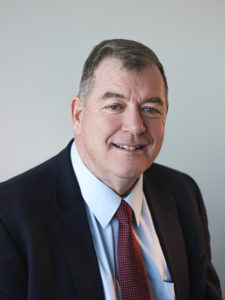
Chip Lagdon designed the coursework for the nuclear safety minor.
Nuclear Safety Minor’s Success Tied to Safety Courses
All the rules and regulations that govern Department of Energy (DOE) or Nuclear Regulatory Commission (NRC) work is in excess of 4,000 pages, so it’s no wonder that when a new graduate lands a job in the nuclear industry, it can sometimes take a year to a year-and-a-half for the company to catch them up to speed.
This was the problem that NE Department Head Wes Hines and Board of Advisor Russell Daniel, manager of engineering and principal vice president at Bechtel, wanted to solve. Their vision was to streamline the learning curve for new hires from the department resulted in the nuclear safety minor, which essentially cuts down the length of training time necessary so graduates can hit the ground running on day one.
“Bechtel identified knowledge of nuclear safety regulation as a critical skill, but we had a hard time finding people with that knowledge in the marketplace,” said Daniel. “We wanted to have the capability to bring them right in after college.”
Chip Lagdon, chief engineer of nuclear operations and safety for Bechtel and a professor of practice for UT, was a part of the team that designed the minor program for undergraduates and graduate students and also teaches several of its classes.
“I think it’s a good program for anyone studying nuclear engineering because nothing happens in the nuclear business without a license or without a safety analysis,” he said. “This area is different than other parts of the academic curriculum because it’s not problem solving, it’s not nuclear research, it’s not the study of atoms; Rather, it’s more about how do you get a license and how do you work within the framework of that license, whether it’s NRC or DOE facilities.”
The undergraduate minor is central to the department’s safety focus and is designed to provide our graduates with a competitive advantage in the job market,” said Hines. “We are excited that so many students see this as being integral to their career path.
One student, graduating senior Harold Carr, credits the safety program with helping him stand out to employers. “The safety minor introduces you to things you normally don’t see in the major,” he said. “I learned more about regulations, how they’re enforced, and how they were created in one class than I did the three years prior.”
Carr will begin a job at Y-12 in April.
Elijah Rosenberg, another graduating senior, said the minor helped him find direction within nuclear engineering.
—Elijah Rosenberg
Lagdon says he developed the course material almost from scratch and works hard to make the courses interesting and practical. Among nuclear engineering departments, the minor program is unique.
“There are no textbooks that cover this,” he said. “It’s complicated; It covers a bunch of different areas, different disciplines within engineering, and so I’m still refining ways to teach because otherwise I would overwhelm the students.”